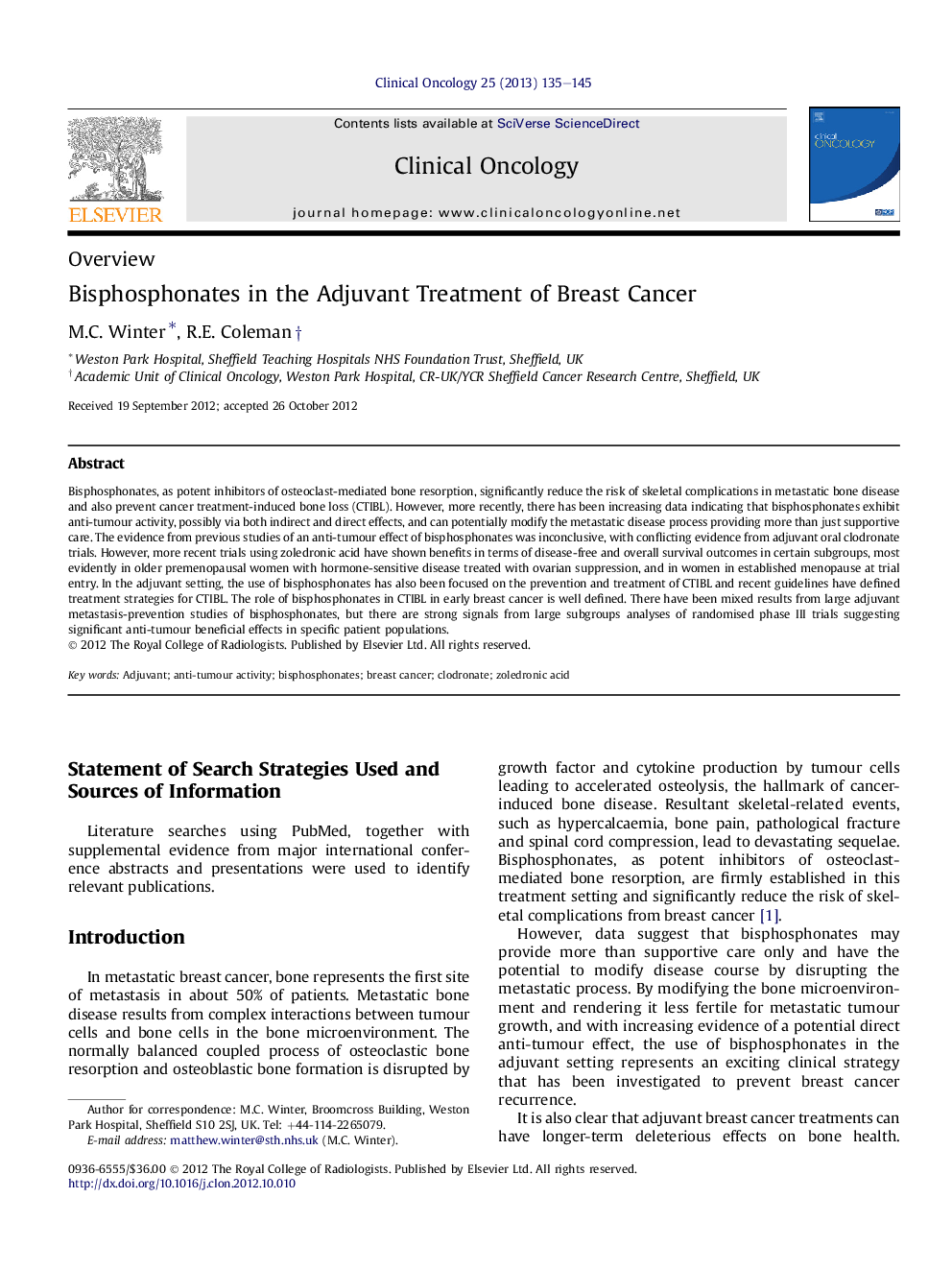| Article ID | Journal | Published Year | Pages | File Type |
|---|---|---|---|---|
| 5698493 | Clinical Oncology | 2013 | 11 Pages |
Abstract
Bisphosphonates, as potent inhibitors of osteoclast-mediated bone resorption, significantly reduce the risk of skeletal complications in metastatic bone disease and also prevent cancer treatment-induced bone loss (CTIBL). However, more recently, there has been increasing data indicating that bisphosphonates exhibit anti-tumour activity, possibly via both indirect and direct effects, and can potentially modify the metastatic disease process providing more than just supportive care. The evidence from previous studies of an anti-tumour effect of bisphosphonates was inconclusive, with conflicting evidence from adjuvant oral clodronate trials. However, more recent trials using zoledronic acid have shown benefits in terms of disease-free and overall survival outcomes in certain subgroups, most evidently in older premenopausal women with hormone-sensitive disease treated with ovarian suppression, and in women in established menopause at trial entry. In the adjuvant setting, the use of bisphosphonates has also been focused on the prevention and treatment of CTIBL and recent guidelines have defined treatment strategies for CTIBL. The role of bisphosphonates in CTIBL in early breast cancer is well defined. There have been mixed results from large adjuvant metastasis-prevention studies of bisphosphonates, but there are strong signals from large subgroups analyses of randomised phase III trials suggesting significant anti-tumour beneficial effects in specific patient populations.
Related Topics
Health Sciences
Medicine and Dentistry
Oncology
Authors
M.C. Winter, R.E. Coleman,
